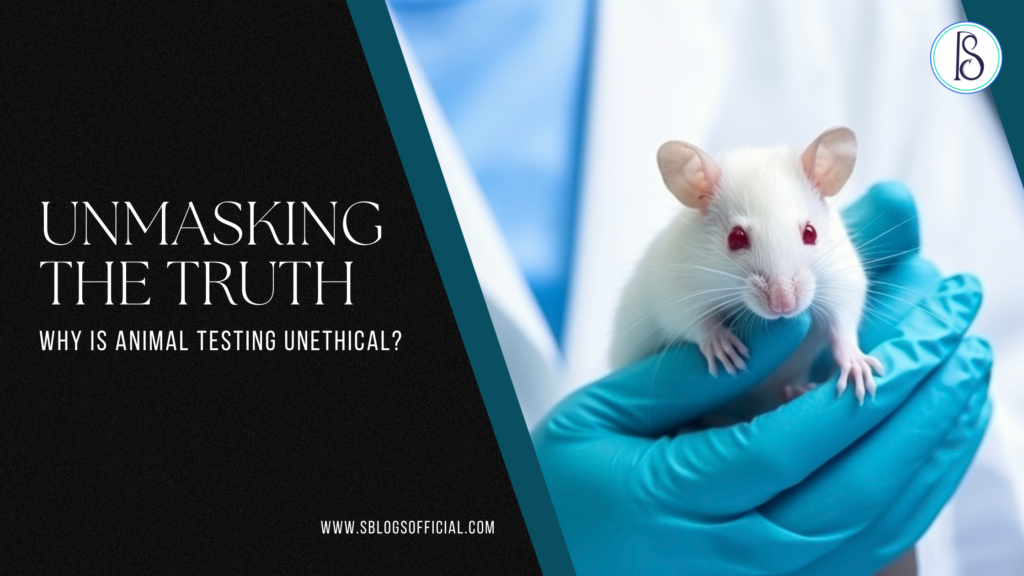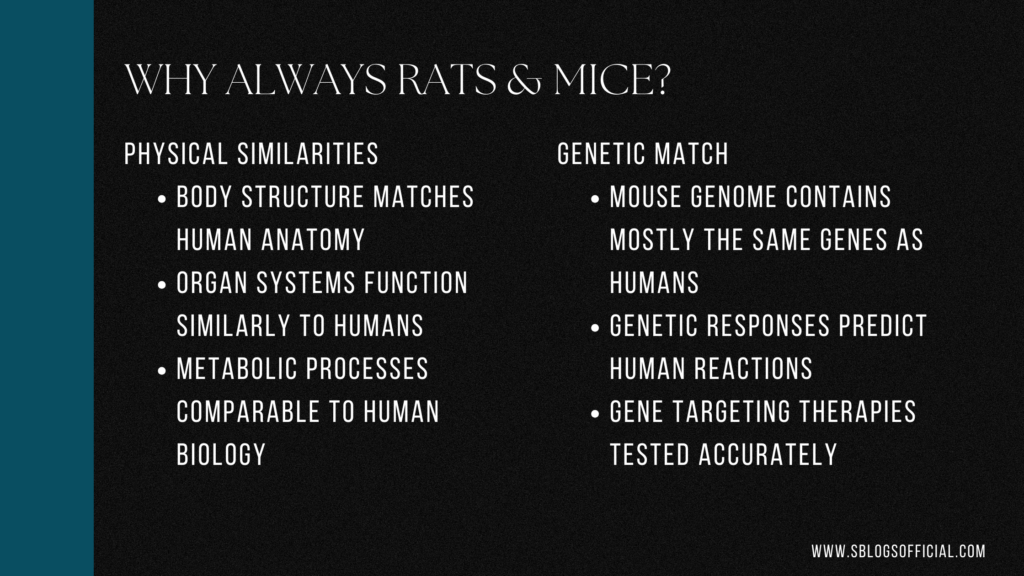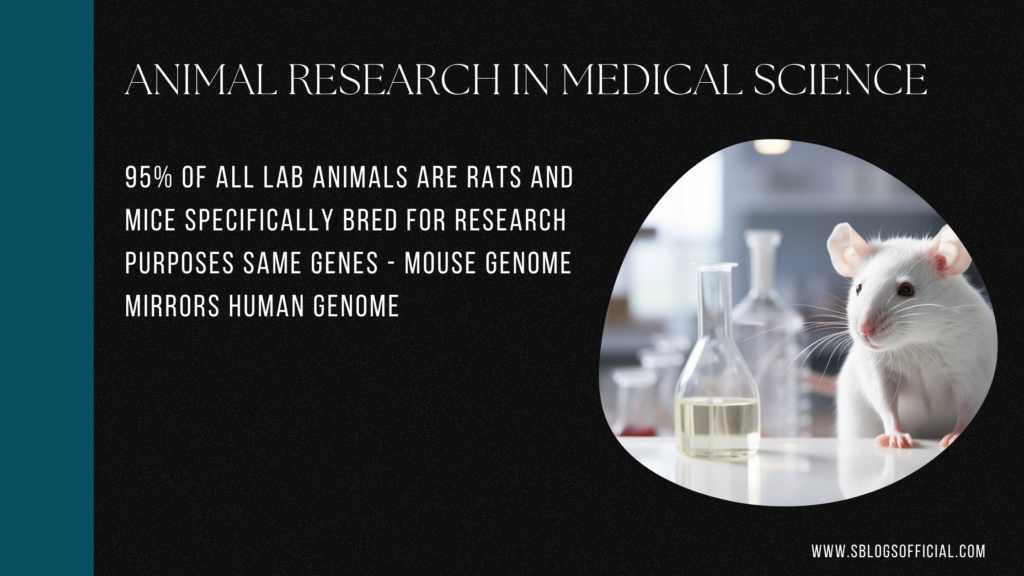
why is animal testing unethical? this question comes with so many scenarios as the animal testing has long been regarded as a necessary evil in the name of scientific progress. For decades, animals have been subjected to painful procedures, psychological trauma, and even death, all under the guise of advancing human medicine and safety. However, as public consciousness grows and science advances, it’s time to challenge the norm and ask the critical question: Why is animal testing considered unethical?
In this blog, we delve deep into the ethical issues surrounding animal testing, examine the inaccuracies of animal testing statistics, and shed light on why this outdated practice needs to be replaced with humane alternatives.
Must Read- The Rising Trend of Wearable Pet Technology: Keeping Our Furry Friends Safe and Healthy

Why Is Animal Testing Unethical?
At its core, animal testing involves using living, sentient beings for experiments that often cause pain, distress, or permanent harm. This practice is inherently unethical for several reasons:
1. Violation of Animal Rights
Animals, like humans, are capable of experiencing fear, pain, and suffering. Yet, in laboratories, they are denied basic rights. From being force-fed chemicals to having their skin burned or eyes blinded, animals are treated as disposable tools rather than living beings with intrinsic value.
The ethical framework that most societies uphold for humans—respect for life, dignity, and consent—is entirely absent in the case of animals. There is a growing consensus among ethicists and animal welfare advocates that causing harm to animals for human gain is morally indefensible.
2. Lack of Consent
One of the most glaring issues is the lack of consent. Human clinical trials require informed consent from participants. Animals, however, are not given the option to choose whether they participate in experiments. Using a being who cannot consent to invasive procedures contradicts the ethical standards we apply elsewhere in science and medicine.
3. Speciesism and Moral Discrepancy
The practice of animal testing is rooted in speciesism—the belief that one species (humans) is superior to others and thus has the right to exploit them. This mindset not only fuels unethical practices but also reinforces discrimination against non-human animals based solely on their species, not their ability to suffer or their sentience.
Must Read- Y Chromosome is Degenerating: A Profound Journey Through Genetic Evolution
Animal Testing Ethical Issues: Beyond the Lab
While the cruelty within laboratory walls is evident, the question always rises that why is animal testing unethical? ethical issues extend even further into broader questions of moral responsibility and systemic problems. Beyond the immediate physical suffering of test subjects, there are concerns about the psychological trauma inflicted on animals, the questionable validity of results when applied to humans, and the potential desensitisation of researchers to suffering. Additionally, the commercialisation of animal testing raises questions about profit-driven research priorities, while the lack of transparency in many facilities prevents proper public oversight and accountability for these practices.
A. Breeding and Captivity
Many animals used in labs are specifically bred for testing. This removes them from their natural environments and deprives them of normal behaviour. They are kept in sterile cages, often isolated, which leads to immense psychological stress. Primates, dogs, and pigs—all known for their intelligence and emotional depth—suffer the most under these conditions.
B. Killing as a Standard Procedure
Even when experiments are concluded, many animals are euthanised—even if they are healthy—because they are no longer deemed useful. This not only wastes life but also reflects how disposable animals are in the testing industry.
C. Psychological and Physical Suffering
Chronic stress, infections from surgical procedures, and repetitive traumatic testing often result in severe suffering. Animals experience fear similar to humans; they tremble, cower, scream, and even develop neurotic behaviours such as self-mutilation.

Inaccuracies of Animal Testing Statistics: Is It Even Effective?
Besides being cruel, animal testing is scientifically flawed. Proponents often claim that animal testing is essential for medical breakthroughs. However, the inaccuracies of animal testing statistics tell a very different story.
1. High Failure Rates in Human Trials
According to data from the U.S. Food and Drug Administration (FDA), approximately **90–95% of drugs that pass animal testing fail in human trials** due to inefficacy or unexpected side effects. This staggering number indicates that results from animal testing often do not translate to human biology.
2. Misleading Safety Profiles
Many drugs that appear safe in animals have proven harmful in humans. A tragic example is the drug thalidomide, which was tested on animals and deemed safe, but later caused severe birth defects in thousands of human babies.
3. Biological Differences
Humans and animals differ vastly in genetics, metabolism, and physiology. What works in a rat or a dog does not necessarily work in a human. These differences make extrapolating results from animals to people unreliable and risky.
4. Ethical Alternatives Are More Accurate
Technological advancements like organ-on-a-chip, computer simulations, and human cell-based assays offer better, more humane alternatives with higher accuracy in predicting human outcomes. These methods are not only ethically superior but also scientifically more reliable.
Also Read- Virtual Nurse Assistant: The Future of 24/7 AI-Driven Healthcare Support
Why Is Animal Testing Unethical in the Age of Innovation?
Given today’s technological progress, continuing animal testing becomes even more unethical as we now have sophisticated alternatives that can provide more accurate and humane results. Advanced computer models, artificial tissue cultures, and organ-on-chip technology can simulate human biological responses more precisely than animal subjects, making traditional testing methods not only cruel but scientifically outdated. The persistence of animal testing in an era of such innovation reflects a reluctance to embrace change rather than scientific necessity. When we have the tools to conduct research that is both more ethical and more reliable, choosing to inflict suffering on animals becomes an indefensible practice that contradicts our moral and scientific advancement.
A. Availability of Alternatives
With modern non-animal research methods available, choosing to harm animals is a deliberate ethical choice. It’s no longer about necessity but convenience and inertia within the scientific community.
B. Public Opposition and Changing Policies
Surveys around the globe show increasing public opposition to animal testing, especially for cosmetics and household products. Several countries, including the UK, India, and all EU member states, have banned cosmetic testing on animals. This shift reflects a growing societal recognition of animal rights.
C. Corporate Accountability
Many brands are now moving toward cruelty-free certifications, driven by consumer demand. Ethical business practices and sustainability are becoming non-negotiable in today’s market, and animal testing is incompatible with these values.
Also Read- How to Take Lemon Balm for Weight Loss: A Complete Guide
A Moral Call for Change
So, why is animal testing unethical? Because it involves causing harm to sentient beings without their consent, it relies on outdated and inaccurate methods, and it disregards the availability of ethical and scientifically valid alternatives.
We cannot continue to base medical and cosmetic advancements on the suffering of other species. As individuals, we must make conscious choices—support cruelty-free brands, advocate for policy reform, and demand transparency in research and product development.
Conclusion
The time has come to unmask the truth about animal testing and answers the mostly asked question why is animal testing unethical? with overwhelming evidence pointing to its scientific flaws, ethical violations, and inhumane practices, there is no longer a justification for its continuation. By demanding change and embracing innovation, we can move toward a future where science respects all life.
Let’s no longer ask whether we can test on animals, but whether we should—and the answer is a resounding no.
References
- Watson & Wolfe. (2023). The Ethical Dilemma: Understanding the Cruelty of Animal Testing.
- U.S. Food and Drug Administration. Why 92% of drugs that work in animals fail in humans.
- Humane Society International. Facts and Figures on Animal Testing.
- PETA. Animal Testing 101.
- Cruelty Free International. The Case Against Animal Testing.
